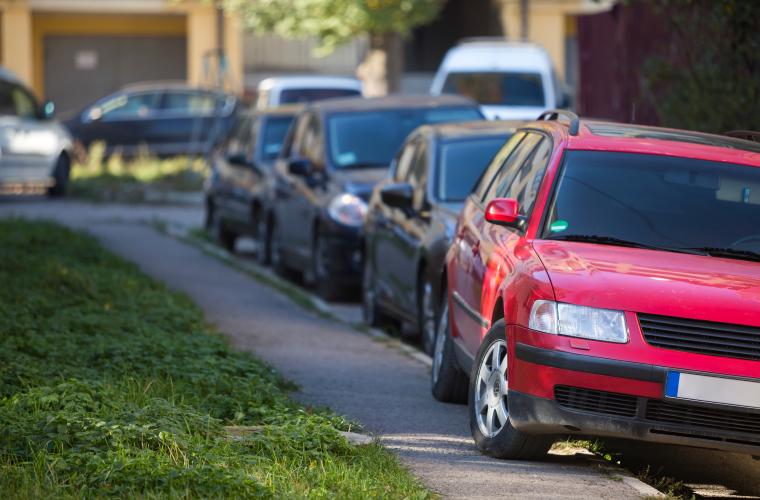Powers to ban pavement parking need to be extended to all areas across England to save lives and make our streets safer, more than three years after a government consultation to introduce them ended, according to a new report published by the Local Government Association (LGA).
Older and disabled people, including those who use wheelchairs, as well as parents with pushchairs and younger children are all forced to navigate around vehicles which are mounted on the kerb or across the footway, potentially risking their lives by stepping into the road and oncoming traffic. This also presents a hazard to blind and partially sighted people.
Parking on the pavement can also crack and damage the surface, creating trip and injury hazards as well as leading to costly repairs and maintenance.
Pavement parking is currently only banned in London, where councils have powers to exempt certain roads. The Government held a consultation on extending this ban to all councils in the rest of England, which ended over three years ago but an announcement has yet to be made. In Scotland, a nationwide parking ban has just started to be enforced by some councils and a consultation is also set to take place in Wales on introducing restrictions on pavement parking.
The LGA, which represents councils in England and Wales, said a change in the rules is now long overdue and would help councils meet national targets to encourage more walking and cycling, while protecting older and vulnerable people from injury.
The independent report, produced by Sustrans and Transport for All and commissioned by the LGA, details the barriers faced by people using the footway and challenges for councils in making them accessible. This includes the lack of space commonly caused by pavement parking, poor surface quality, trip hazards and not enough places to cross the road safely.
Lack of funding, difficulties in maintaining a clear picture of the condition of footways and bureaucratic hurdles in obtaining Traffic Regulation Orders, are also identified as challenges for councils.
Poorer quality pavements can also lead to lower footfall at local businesses and injury claims from people tripping and falling. For those who are older or impaired, it could also lead to reduced independence, social isolation and exclusion, which could worsen their condition. Even where people are able to catch buses, the state of some pavements mean they are not always able to board or step off from them safely.
Cllr Darren Rodwell, transport spokesperson for the LGA, said:
“Pavement parking is one of the biggest complaints from pedestrians, but three years on, councils outside of London still do not have the powers they need to tackle this scourge.
“Vulnerable and disabled people, including wheelchair users as well as parents with pushchairs are forced into the road due to some drivers’ inconsiderate parking, presenting a real hazard and potential danger to life.
“Repairing kerbs and pavements damaged by pavement parking is also expensive and this funding could be better used to resurface our roads and pavements, support local buses and provide more suitable parking.
“If we are to meet the Government’s ambition for half of all trips in England's towns and cities to be walked, wheeled or cycled by 2030, then it makes sense to give councils across the country the same powers as in the capital, making our streets safer and footpaths open for everyone.”
Notes to Editors
LGA publication: The path to inclusive footways

